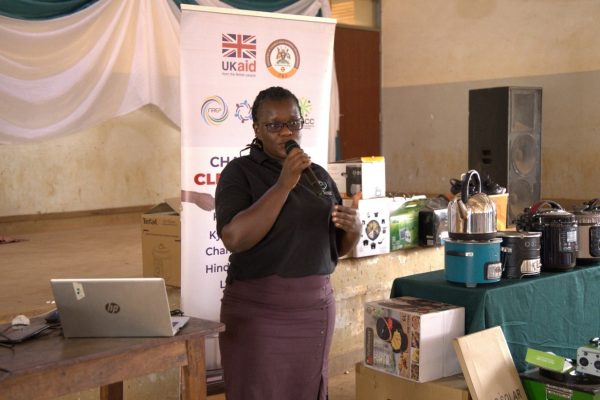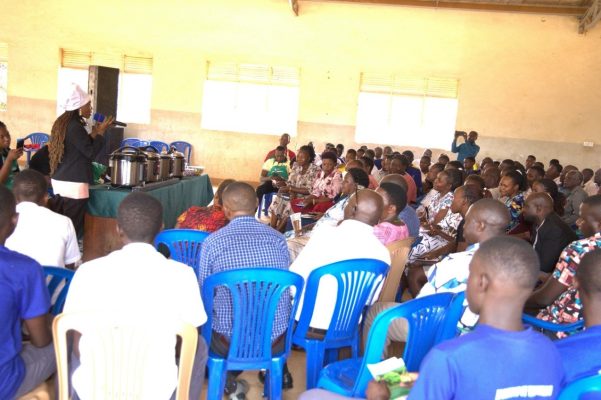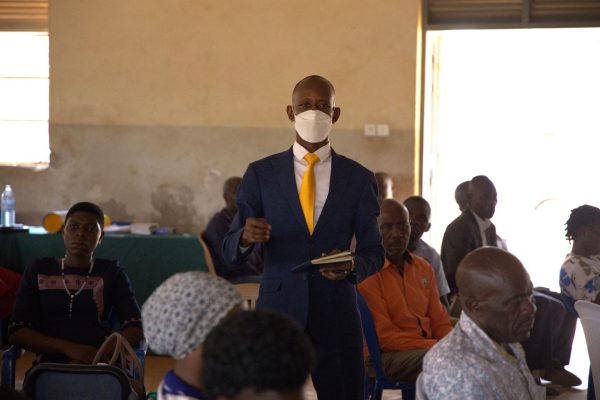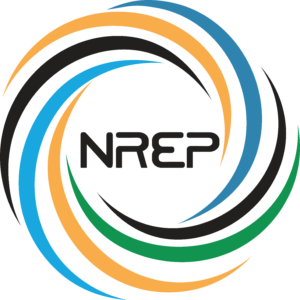Hoima City, 10th to 14th March, 2025 – The National Renewable Energy Platform (NREP), in partnership with the Ministry of Energy and Mineral Development (MEMD) and the Uganda National Alliance on Clean Cooking (UNACC), launched a week-long Behavioral Change Communication for e-Cooking (BCCeC) campaign in Hoima City. As part of this initiative, a one-day workshop for local leaders was held on March 11, 2025. Supported by the UK government through the Modern Energy Cooking Services (MECS) program, the campaign aimed to accelerate the adoption of electric cooking (e-cooking) technologies throughout Uganda.

Key Highlights & Observations
The NREP team commenced the meeting by introducing new clean cooking technologies to residents, with a strong focus on electric pressure cookers (EPCs) as an affordable, time-saving, and energy-efficient solution. They also sensitized the community on the benefits of adopting electric cooking. However, residents of Hoima city expressed concerns over the high cost and unreliability of electricity, with some households lacking access altogether. Despite these obstacles, they recognized the benefits of cooking with electricity, particularly given that reliance on biomass fuel has led to deforestation, contributing to extended periods of extreme heat.
One of the most memorable and influential moments was listening from the Deputy RCC of Hoima City, Moses Muyambi, who highlighted the significance of clean cooking in environmental conservation, public health, and time efficiency. He emphasized the need for broader grassroots engagement, inclusive participation of persons with disabilities, and collaboration with faith-based organizations to enhance awareness.
The team also conducted a radio talk show on Radio Liberty 89.0 FM extended campaign messages to a broader audience across Hoima, Masindi, Kikube, and surrounding districts. The session, conducted in multiple languages, addressed misconceptions, shared clean cooking benefits, and responded to listener inquiries on affordability and accessibility of e-cooking appliances.

Key Challenges & Lessons Learned
Although there was eagerness for clean cooking solutions, many residents voiced concerns about the limited awareness and availability of electric cooking appliances, high electricity costs, and the unreliability of power supply. Additionally, some identified the initial purchase cost of modern cooking appliances as a significant obstacle. Furthermore, attendees raised safety concerns regarding the use of electricity, as many admitted they were unsure how to properly use electric cooking appliances. This feedback underscores the need for collaboration with cultural, religious, and academic institutions, as well as the introduction of subsidies, financing models, and awareness campaigns to foster greater adoption. Scaling up awareness campaigns to educate more residents on the benefits of clean cooking, driving adoption at a larger scale.

Conclusion
The Hoima city outreach campaign effectively promoted the adoption of clean cooking technologies, particularly Electric Pressure Cookers (EPCs). The campaign highlighted the need for collaboration among stakeholders, emphasizing that with supportive policies, awareness programs, and financial backing, the transition to clean cooking can be accelerated, leading to healthier communities, environmental preservation, and economic growth. The residents agreed to form working groups to facilitate easier access to appliances on credit and promote the adoption of clean cooking practices within their communities.



